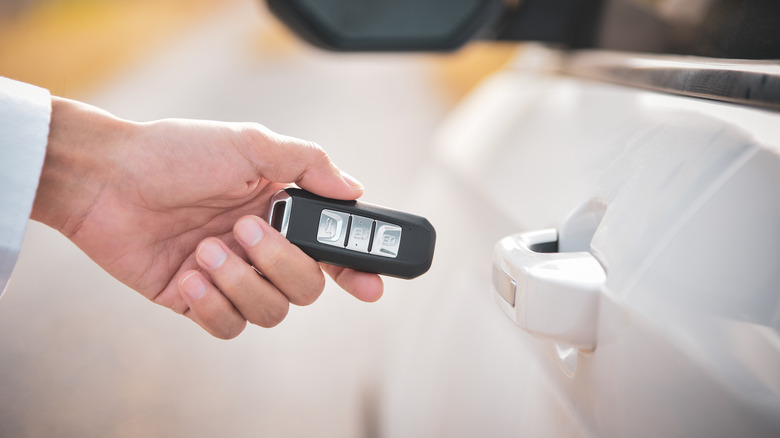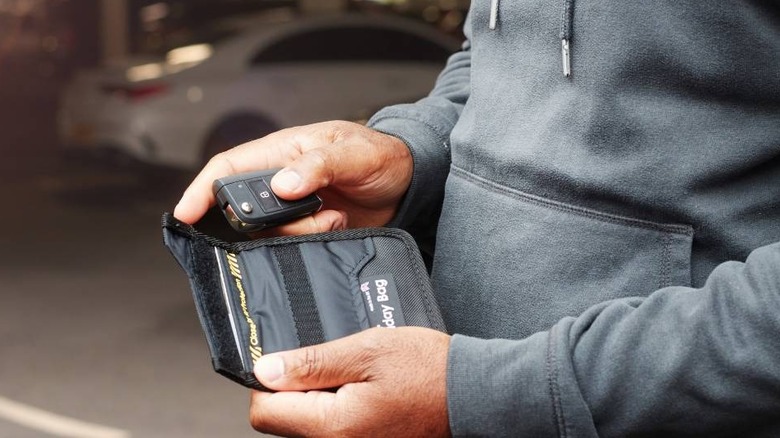Does Wrapping Your Key Fob In Foil Actually Make It Harder To Steal Your Car?
For about as long as wireless tech has existed in the public sector, people have been looking for ways to manipulate it, be it for good, for evil, or for practicality. One of the most common examples of this practice involves using tin foil, which could theoretically be used to block and redirect wireless waves due to its metallic constitution. Some tinkerers have managed to get results from focusing a Wi-Fi router's signal in a particular direction using tin foil, for example.
Since these tin foil tricks seem to work, there's another avenue of foil-based tinkering that may be worth considering: security. Specifically, security for your car's wireless key fob. Tinkerers and security enthusiasts have recently posited that wrapping your car's key fob in a lump of tin foil can block the signal it produces, preventing bad actors from co-opting that signal in order to steal your car. But does this theory actually hold water, or is it about as plausible as wearing a tin foil hat?
The tin foil theory
Car key fobs operate using two pieces of radio-based technology: radio waves and a radio frequency identification system, or RFID. A wireless key fob has its own unique RFID signal paired to your car. This is how your fob is able to send remote commands with button presses, like locking doors and sounding the alarm. However, with the right kind of technology (or, rather, the wrong kind of technology), a bad actor could co-opt your fob's RFID signal and send an unlock command to your car. Afterward, they can waltz right over, pop the doors open, and go on their merry way.
The tin foil theory banks on a metallic material's natural ability to block and redirect electromagnetic waves, including radio waves. If you were to wrap your key fob in a few sheets of foil, especially very thick foil, then its RFID signal wouldn't be able to get out. While that does mean you'd need to take the fob out of the foil every time you want to use it, it also means that a bad actor wouldn't be able to intercept and co-opt its signal.
Does it actually work?
So, does wrapping your fob in foil actually do anything? The answer is... not really. Contrary to popular belief, foil does not completely block RFID signals, it just inhibits them. It makes it a lot harder for the signal to travel, yes, but it can still get out, which means a criminal can still co-opt it. Not only that, but different cars operate on slightly different technologies, each with its own weaknesses. For instance, bad actors could copy your signal for cars that automatically open when the fob is near or use signal amplification to pick up your signal even through the foil. The differences are heavily reliant on your car's make and model, so there isn't really a one-size-fits-all solution.
That said, if you really want to isolate your fob's signal, the best thing you can do is place it in either a solid metal container or a Faraday bag. A Faraday bag is a little fabric pouch lined with electro-conductive metals like copper and aluminum, designed with the express purpose of blocking RFID signals.
Besides all that, though, the best thing to do is remember your basic car safety practices – don't leave anything valuable in it, activate the alarm, and if possible, park it in a closed location like a garage. While these kinds of high-tech car jacks do happen, they're very uncommon, so as long as you take the proper precautions, the odds of such a thing happening to you are low.


